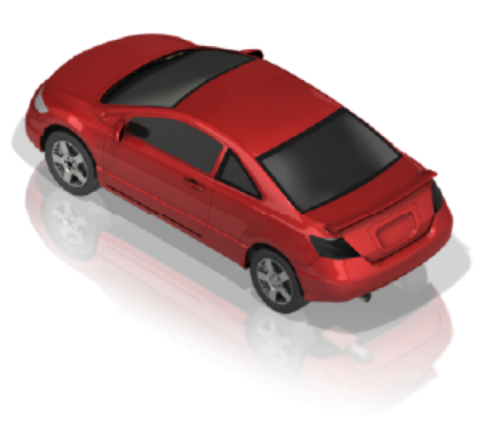Advice for anyone buying a car (new or used)
The process of buying a vehicle is generally straightforward, however there are numerous factors to take into consideration which will influence your decision to buy. For instance, what are your motoring needs, what is your budget, how will you finance the purchase (loan etc), the cost of insurance, the running costs of the car, the duration of your ownership of the car (taking into account depreciation) and many other factors.
Consumers are looking for a variety of things when they purchase a car, specifications and features, fuel efficiency, engine size, finance packages, warranty details. It all depends on your own personal taste and requirements, but the main thing all consumers have in common is that they are looking for value for money.
The type of car you purchase will be determined by your budget, your lifestyle choices and personal preference. There are many ways to finance a car to but what you need to look at, is the cost to change into a new/used car. Purchasing a car is a big investment and it is important to make a list of the items that you feel are important in the car of your choice.
Do Your Research

For consumers looking to purchase a new or a used car, the best advice is to do your research in advance and to shop locally for the best deal. Whether considering buying an Irish sourced or an imported used car, there are benefits in buying locally from an SIMI dealer. The majority of used cars are actually imported by Irish car dealers for their customers rather than by private buyers travelling to the UK. Your local SIMI dealer will have done the checks on the car for you in advance, and will stand over what they sell, and in the event of any potential issues arising after you buy, these can be resolved locally, rather than having to travel to obtain a satisfactory solution.
We can’t emphasis enough the importance the importance of doing your research when buying a car particularly a second-hand car you need to be well informed as you are not the original owner. Buying a car from a dealer means as a consumer you will be covered by consumer protection laws, while if you buy privately you
are not buying from a business and therefore are not afforded the same protection i.e. in the event of something going wrong you will have no comeback so it is a case of buyer beware.
There are plenty of retailers with a variety of generous offers available. Many consumers are now doing their own online research before visiting a dealership. The SIMI’s own used car website www.beepbeep.ie displays cars from our members all of which have been car history checked providing the consumers with piece of mind. Consumers should conduct their own Car History Check and/or a Financial Check on one of the specialist websites who offer this service (if the dealer does not provide same). All our SIMI members will be more than happy to speak with potential car buyers to discuss the range of cars and types packages they have available in their new and used car stocks.

What type of car ?
When you find the car you are looking for, you should ask the dealer for the service history of the vehicle if it’s a used car and determine the type of warranty which is available with the car. The length of warranty, on a new vehicle is generally determined by the manufacture while a used car can be negotiated at the time of the sale.
New cars have newer technologies, and enhanced safety features. Many younger cars come with features such as parking sensors, reversing cameras, heated seats, sat navs, air conditioning, blue tooth, and cruise control to name just a few. The majority of newer cars are listed in the A and B category for CO2 levels meaning their road tax is greatly reduced, and they are more environmentally friendly and economical to drive in comparison to older models. Buying a car is the second biggest investment you will make in your lifetime, so it’s important that you are well informed and happy with your end choice.
If your car is a company car then there are certain Benefit-in-kind (BIK) exemptions and discounts available where the car made available to you as an employee is an electric car.
Partial relief will apply in respect of cars made available between 1 January 2023 and 31 December 2025. Visit Revenue.ie for BIK information.
There is a maximum grant of €5,000* available for qualifying electric vehicles when purchased privately. The Sustainable Energy Authority of Ireland's website contains information on the grant scheme and qualifying vehicles www.seai.ie/grants. *(Note: The maximum grant for a private M1 (passenger car) will change to €3,500 from the 1st July 2023.)
There are many different fuel types (petrol, diesel, conventional or plug-in hybrid or fully electric), for instance, offer different benefits and different characteristics, such as fuel consumption, emissions etc. Your choice of engine and fuel type should, ideally, take account of where you live, the mileage that you drive and of course the environmental and cost benefits.
Buying a new or second-hand car is an exciting experience for car buyers and if you do your research prior to purchase you can make it a smooth process where you will have confidence that you have made the right decision for you.

Top Tips

- Do your research and shop around for the best deal.
- Find out as much as you can about the company you are purchasing the car from. Are they an established trader with a good reputation? Member of a trade association such as the Society of the Irish Motor Industry (SIMI)?
- If purchasing a used car ask about the history of the car, (number of previous owners) many dealers will provide a car history check report.
The service history will show if the car has been well maintained. - Make a list of the items that you feel are important in the car of your choice, be practical as to what your needs are.
- Decide on your budget and what the cost to change will be.
- Depending on your travel requirements, the amount of mileage you will be doing. Will it be mainly urban or rural driving as this may determine your choice of car by fuel type, fuel economy and engine size.
- Do have a checklist, of physical checks for both inside and outside of the car. Look for wear and tear on the tyres, wheel arches, are all lights working properly, seat belts, seats easy to adjust, wipers working, check the oil, any signs of leaks etc.
- If purchasing a second-hand car it is strongly advised that you get a mechanic, an auto engineer or a person with some mechanical background to inspect the car, as they will give their independent expert advice.

- Don’t purchase any car without test driving it first.
- Never view a car late at night.
- Buying a car is the second biggest investment you will make in your lifetime, don’t feel pressured or rushed into buying, take your time to make your decision.
- Don’t buy a car from an unknown source; make sure you are buying from a reputable and reliable company.

Useful Research Resources
The Central Bank is the Financial Services Regulatory Authority also offers advice to consumer with regards to car finance and insurance cover.

There are a number of car history checking facilities available online which you can use for a small fee to check a vehicle.
Many of our members use our car history check service and you can ask them for a report.